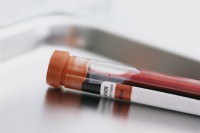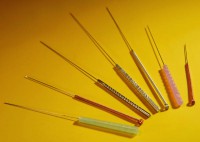
At Rice University they are blowing up cancer cells with nanoparticle “bombs.” Like integrative immunotherapy, the new cancer-fighting technique kills cancer cells without harming surrounding healthy cells. Experimental trials have been so successful destroying aggressive and resistant cancer cells, particularly in the head and neck areas, that human trials are expected to begin in the near future.
Cancer Bombs
Rice cellular biologist Dmitri Lapolko who developed the new treatment calls it quadrapeutics for the four techniques – nanoparticles, laser, drugs and radiation — used in this revolutionary new cancer treatment. Here’s how it works (Click here to watch a video.):
1. Colloidal gold nanoparticles filled with a small dose of chemotherapy drugs are injected into the body at the tumor site.
2. The nanoparticles are detonated with a near-infrared laser. The gold magnifies the laser’s effect which allows the use of very small doses of radiation.
3. As the laser hits the nanoparticles, they burst. The energy expansion creates a momentary bubble that blows up and destroys surrounding cancer cells, much like the shock wave from a bomb.
4. Chemotherapy drugs released when the nanoparticles explode deliver a second deadly payload to any remaining cancer cells in the area. With their cell walls already damaged by the nanoparticle explosion, remaining cells are quickly penetrated by the chemo drugs which are able to directly attack the cytoplasm at the cells’ heart, destroying them.
Cell Therapy
If human trials are successful, Lapolko believes quadrapeutics could be valuable in addressing complex tumors intertwined with critical organs. Increasingly the fight against cancer is being conducted on the cellular battlefield. Visit our website for information about cell therapy in cancer treatments.





